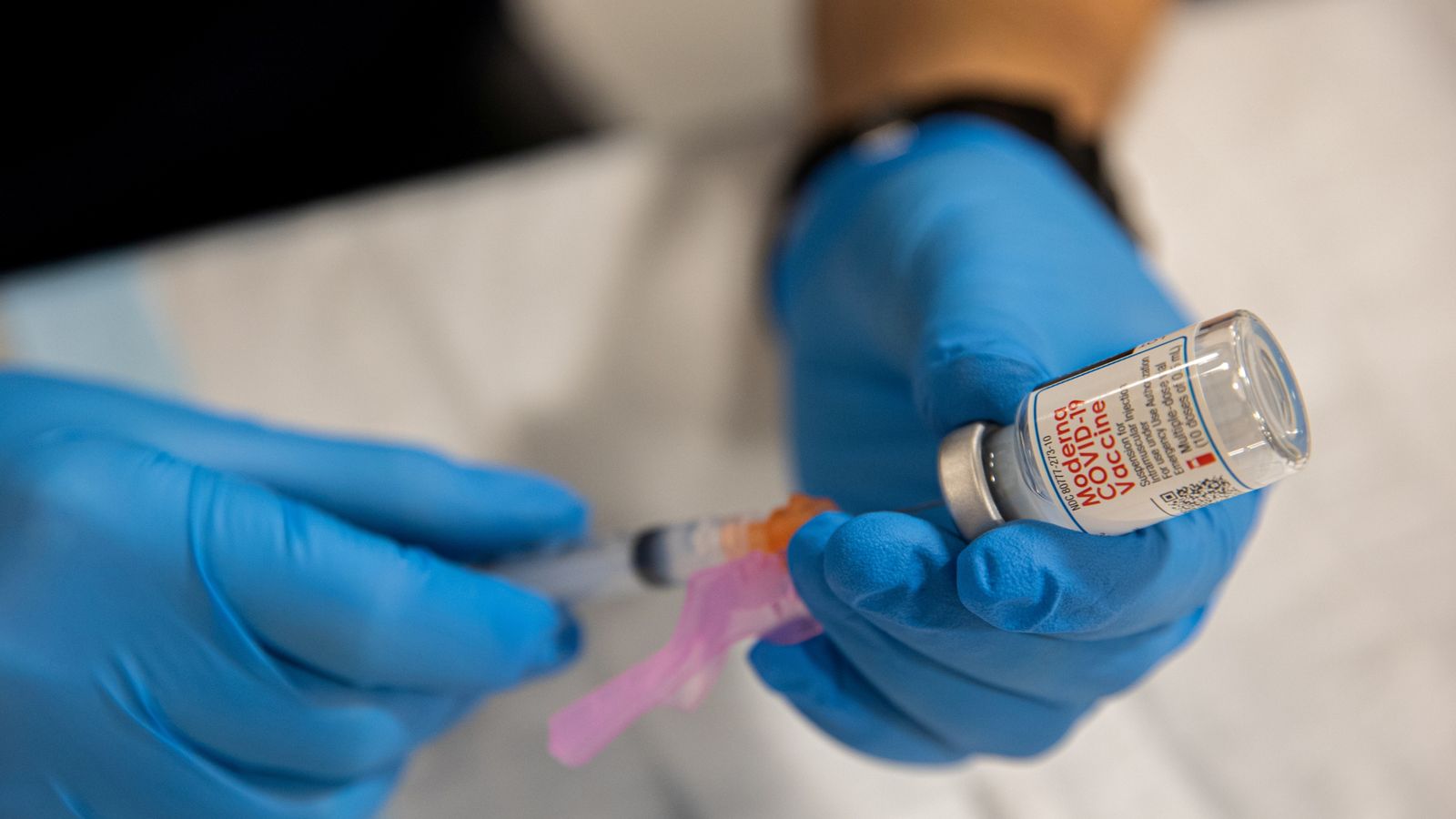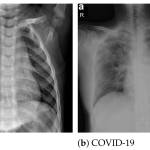Pregnant women should be offered the COVID-19 vaccine, according to the latest government advice.
The UK’s vaccine advisor has said that women who are pregnant should be offered the Pfizer and Moderna vaccine at the same time as the rest of the population based on their age and clinical risk group.
Until now, pregnant women had been advised not to get a jab because of a lack of data on the impact of taking it at any stage of the pregnancy.
Live COVID updates from UK and around world
However, the Joint Committee of Vaccination and Immunisation (JCVI) has now said there are “no specific concerns” identified with “any brand” of vaccines.
“Women who are planning pregnancy, are in the immediate postpartum, or are breastfeeding can be vaccinated with any vaccine, depending on their age and clinical risk group,” the JCVI said.
It said data from the US showed about 90,000 pregnant women had received jabs, mainly the Pfizer-BioNTech and Moderna vaccines, “without any safety concerns being raised”.
As a result, the JCVI said it advises that it is “preferable” for pregnant women in the UK to be offered these two vaccines where available.
It added: “There is no evidence to suggest that other vaccines are unsafe for pregnant women, but more research is needed.”
Dr Mary Ramsay, head of immunisation at Public Health England (PHE), said: “The available data on the Pfizer-BioNTech and Moderna vaccines provide confidence that they can be offered safely to pregnant women.
“The COVID-19 vaccines continue to save thousands of lives and it is important that we encourage as many people as possible to take up the offer when it is their turn.”
Pregnant women should still discuss the risk and benefits of being vaccinated with a doctor.
It added that, although uncommon, severe illness due to coronavirus is more likely in later pregnancy.
Subscribe to the Daily podcast on Apple Podcasts, Google Podcasts, Spotify, Spreaker
Pregnant women with symptomatic COVID infection are two to three times more likely to give birth prematurely, the JCVI said.
Jabs had previously only been offered to pregnant women when their risk of exposure to the virus is high, such as health workers, or if a woman has underlying conditions placing her at higher risk of complications.






















